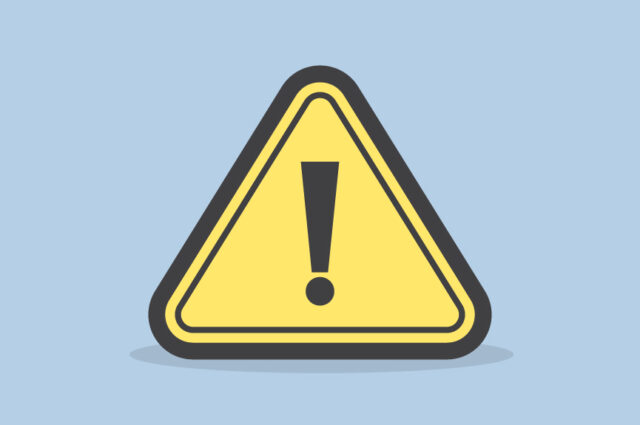
Naturally, we feel anxious if we encounter a distressing situation. As part of our internal fight-or-flight mechanism, anxiety tells us to avoid a potentially dangerous situation.
However, there are those who feel anxious even with the absence of a threat. This often leads to a disorder that interferes with daily life, sabotages relationships, and hinders personal development. If you or someone you know experiences severe cases of anxiety, then consider these important tips for bringing back peace of mind.
1. Slow down when you need to

Often anxiety sets in if we are too immersed in an activity or task. Working hard isn’t a problem, but it can cause you to set unrealistic expectations. If the idea of not being able to do a good job worries you, then you could expect severe anxiety to set in.
The best way to address this is also the simplest: take a break. Your mind and body need time to recharge. Like a machine, you will overheat if you can’t pause for a well-deserved rest. 30 minutes or an hour will do. Make the most of the time by doing something that brings you peace.
You can try deep breathing techniques. These work best when you have been working long hours. Step away from your workspace, find a peaceful spot, and inhale deeply. As you feel the tension drift, push it further away with a long exhale. These simple techniques can help bring your mind at ease.
2. Know your triggers

Apart from overwhelming amounts of work, there are other things that could trigger your anxiety. Is there a person you fear the most? Do you have a phobia of heights? Did you experience a traumatic event when you were younger? There is a long list of things that could possibly trigger severe anxiety symptoms.
In certain forms of anxiety, an object or event associated with the trigger (whether directly or indirectly) can also cause distress. In any case, it would be best to document these triggers and determine how they make you feel.
For this, you should be able to write down each time you have experienced an anxiety attack. Write the date and time and make a list of the possible reasons. Analyze why they cause distress.
3. Talk to a family member or friend

You can’t keep your worries to yourself. Pent-up anxiety can lead to more severe symptoms. At times, you need to take the load off by talking to someone.
You need to get rid of the notion that you can manage your problems by yourself. We have family members and friends who can listen to you and provide valuable advice. You might think it’s a sign of weakness to let anyone know you have a problem, but opening yourself up requires a great amount of courage.
If you are feeling afraid or anxious, share it with someone you can trust. You will be surprised by just how much you mean to other people. After all, your closest social circles have a genuine desire to help.
Never pass off on this opportunity to get better. Nurture relationships with the most valuable people in your life so you won’t have to feel alone and hopeless in carrying your burdens.
4. Take a trip

Not many people are fond of traveling. Some also experience what is often called travel anxiety. Then again, journeying to a new place also has a positive effect on the mind.
Whether you are going to a nearby park or booking a flight to another country, traveling can help you loosen up and forget about the things that trigger your anxiety. It also brings you to a state of peace as it allows you to appreciate the simplest things in life and open yourself up to new experiences.
Traveling also puts you back in control of your thoughts. You ignore the causes of your anxiety, declutter your thoughts, and enable you to confront a problem with a clear and focused mind.
If you are stressed out at home or at work, take a walk, journey to an unfamiliar place, and lose yourself in the experience. You will eventually come back feeling less worried about the future.
5. Mind your body

Your physical condition has a significant impact on your emotions. This is because physical activity stimulates the production of hormones that reduce the effects of anxiety and stress.
As a matter of fact, the Anxiety and Depression Association of America says that regular exercise is crucial to mental fitness. Having a physical fitness routine helps in the production of endorphin, a substance touted as the “happy hormone.” Doing yoga is also a great way to cope with anxiety.
In addition, your diet also has an impact on your mood. Drinking alcohol and coffee excessively can aggravate the symptoms of severe anxiety. If you are coping with stress, you are better off munching on healthier detoxifying food during an all-nighter.
In addition to these, you also need to practice self-care. Learn to say “No” to situations or requests that could exhaust you physically. Take time to pamper yourself as well. If you are living in British Columbia, consider looking for a clinic that specializes in massage therapy Burnaby from this site. A good massage not only helps your body relax but also produces endorphins and cortisol which work best against stress associated with anxiety.
6. Get professional help

When your anxiety symptoms become severe, it would be best to seek out a specialist. A psychotherapist or mental health expert can help you get to the bottom of your condition. They can also prescribe some drugs to help ease the symptoms that come with or amplify your anxiety.
There is no harm in looking for a professional for help. If anything, you have made the crucial decision of putting yourself on the path to a full recovery. Anxiety affects us all, but it shouldn’t keep us from winning in life. There is hope on the horizon for people who live with anxiety. It’s only a matter of making the effort to confront it.








